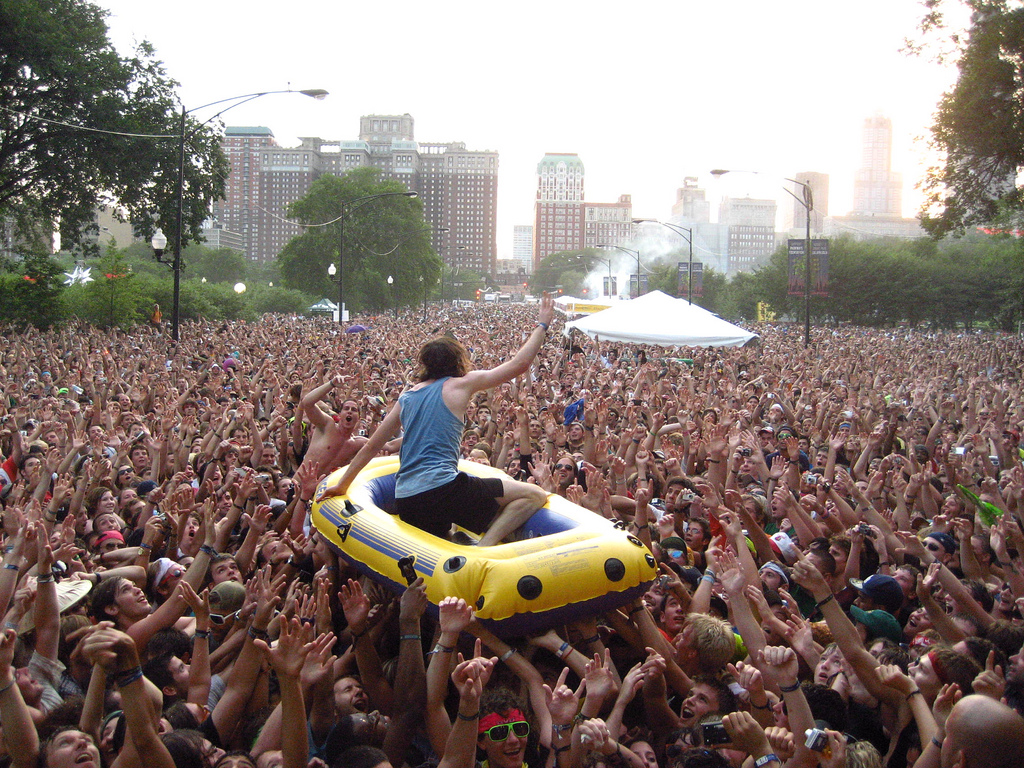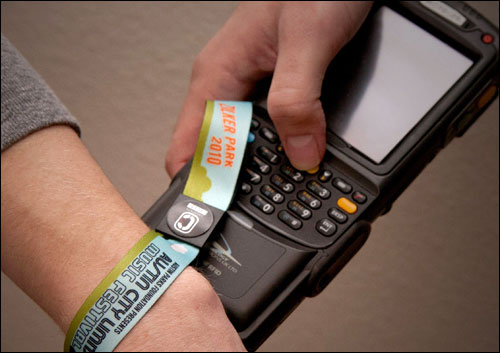Cashless Events: Music Festivals Lead the Charge
Yesterday, AdWeek’s Lauren Johnson wrote an article on Lollapalooza going cashless. There has been a long and steady move towards cashless-ness from the time that credit card companies began their dominance to PayPal’s founding in 1998. Can you believe PayPal started 16 years ago?! Platforms like venmo are having success in converting cash users and Clinkle, much talked about for their record seed funding and recent controversy, threatens to turn mobile payments on its head.
But in-event spending is unique. Instead of trying to convince the entire country or planet to make the switch to using their mobile devices to pay for things, you can start with a single event. Certain events, like major music festivals, are like an independent ecosystem. It’s a large but reasonable number of people that tend to be younger and very tied to their phones. Plus, instead of asking the attendees to please avoid using cash, you can force them to. The creators of the music festivals are providing fans with talent and an unmissable experience (or risk near certain death by FOMO). They own the ecosystem and make the rules, within reason. Music festivals are the ideal stage to lead the cashless charge.
But everybody knows that poor internet connection is inevitable when 150,000 social media obsessed smartphone owners cram into one area. What then? Mobile apps are not the only way to transfer funds. This summer, Lollapalooza has chosen to go with RFID-enabled wristbands for payments. Attendees receive their bracelets before the August event that can be linked to their credit cards for buying food, drinks, and other in-event items and services.
A chip is embedded into the wristbands that concertgoers have to wear to enter Lollapalooza. The vendors will have point-of-sale systems in place so that people can tap the bracelets against a technology-enabled pad and type in their PIN to complete transactions. The RFID wristbands work offline to account for weak internet connections at these types of events. If the internet is non-existent, transactions are stored in the system until they can be processed later.
Marketers at Governor’s Ball Music Festival and Electronic Daisy Carnival have already put emphasized the importance of connecting with smartphone-toting millennials. Johnson writes, “Lollapalooza’s effort that layers in e-commerce is interesting because it shows how music festivals testing new types of payments may give marketers like McDonald’s and Starbucks that are already betting on mobile payments some additional insight into how millennials actually use their smartphones at events.”












Comprare Patente di Guida